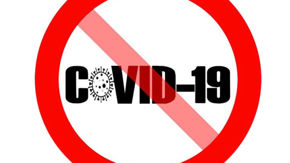5 mins read//
Being a CEO is demanding both mentally and physically. Most CEOs work long hours and typically travel a lot making it challenging to focus on maintaining a healthy lifestyle. This is true for most business professionals that I know in today’s demanding culture of “always on”.
Most of what we write about on LinkedIn is business success and insights; however, I think it is critical that we acknowledge and discuss the importance of your health and wellbeing as well as your employees’ health and wellbeing; and why that can drive positive business results. A powerhouse woman I met previously, Diana Cabrices , wrote a post on LinkedIn a week ago discussing her need and plan to prioritize her health, has unknowingly inspired me to write this article.
I've learned through my own personal experience that my health and wellbeing are not just personal matters, but essential for sustained business success and personal fulfillment. As I read Diana’s post, I realized that I had not been prioritizing my personal health. I found it easier and easier to make excuses for not working out and indulging in high caloric meals while traveling for business resulting in weight gain and high cholesterol, neither of which I ever had an issue with previously. I quickly realized that if I didn’t take action and make changes, it could have a direct impact on both my work and personal life, and potentially diminish my effectiveness as a leader and my overall happiness in my personal life.
The Integral Role of Health in Leadership
Like I do with most challenges, I attacked it with vengeance. I went to a wellness center and did a comprehensive blood work up, I signed up for personal training, I made modifications in my diet, which is already having great results. By prioritizing my physical and mental wellbeing, I've noticed an improvement in my decision-making, resilience, and leadership abilities. This is not just anecdotal; research consistently shows a direct correlation between a leader's health and their professional effectiveness. A healthy leader is better equipped to handle the rigors of corporate decision-making and people management. And while I am writing this from the perspective of a leader because that is my function, I believe this applies to almost anyone.
I am choosing to write about this now because the first of the year is when most people make resolutions to improve key areas of their life and not too surprisingly, both weight loss and physical fitness are among the top resolutions that people make. Sadly 80% of people give up by February.
I believe as leaders, we have a responsibility to discuss and support health and wellbeing because we have the power to create a more positive work culture where people are encouraged to focus on and prioritize their health and wellbeing which can help them thrive both personally and professionally. After all, it is people that make our companies successful so by supporting this initiative as part of corporate culture, it will help to drive successful results for your business.
Here are some suggestions that I have and do at our company:
- Ensure you have a good healthcare plan available to your employees.
- Communicate the benefits of the healthcare plan and what resources are available.
- Encourage employees to utilize their benefits, especially wellness exams.
- Encourage use of PTO for vacations and sick time when needed.
- Set a culture that allows employees to take time for breaks during their workday (lunch, a walk, etc.)—remote working has its benefits, but also has created a heavy meeting culture where employees are required to be on Zoom all day.
- We have a mental health day that employees can use at any time with no questions asked.











